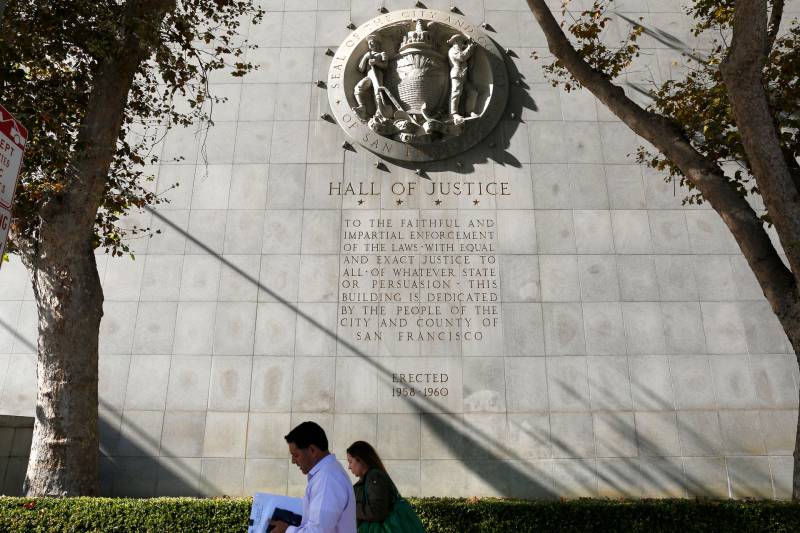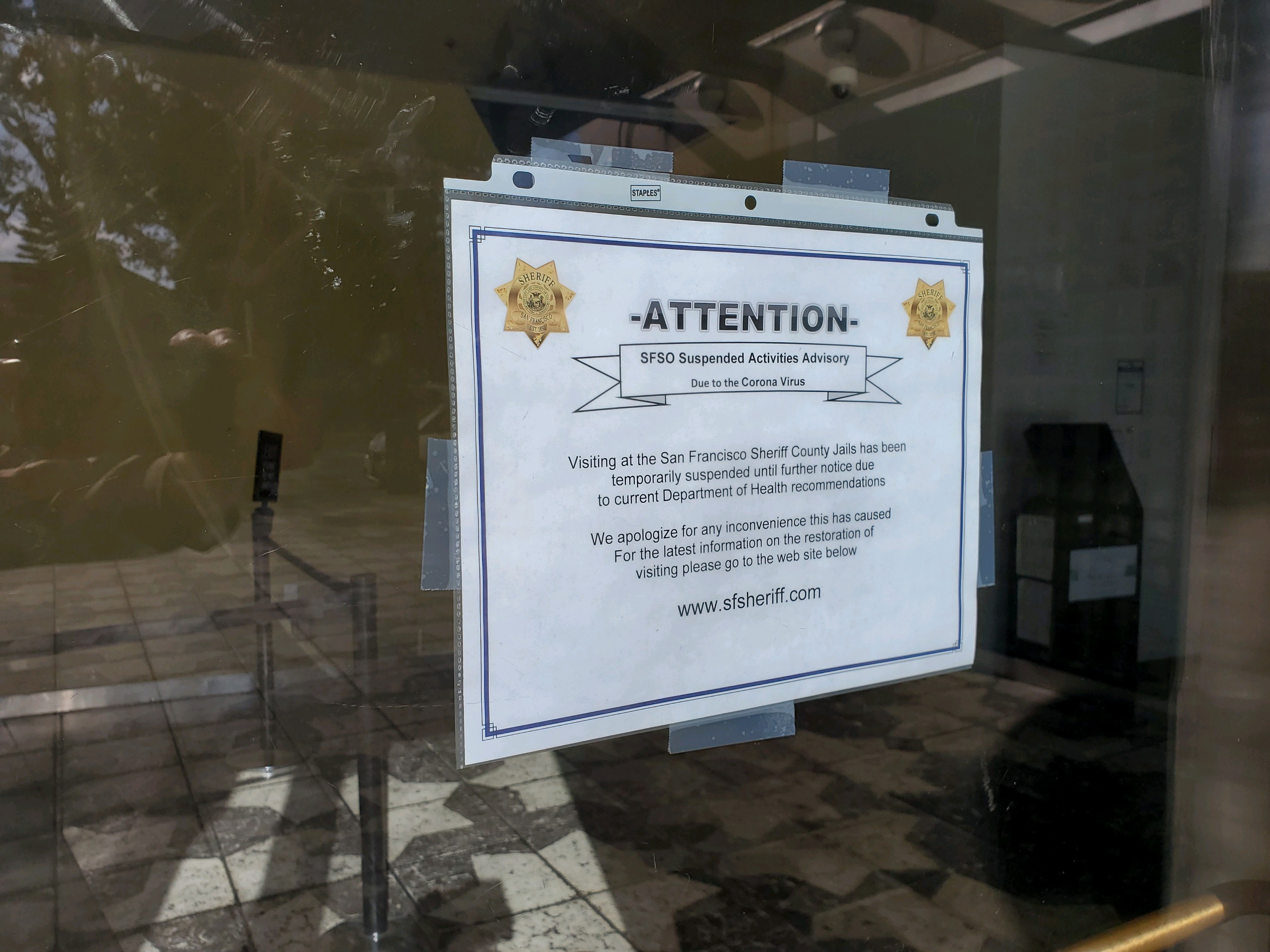Valencia said in Sonoma County, no inmates or staff have undergone testing for COVID-19, but that arrestees are being asked additional questions about their health and travel history.
Contra Costa County Sheriff’s spokesman Jimmy Lee declined to answer questions about medical screening for inmates or staff. However, Lee noted that deputies have been given protective equipment “to include gloves, googles, gowns, a face shield and masks.”
While family visits have been suspended for all counties under shelter-in-place orders, jails are still allowing legal visits. And a couple of facilities have made modest efforts to provide easier access to phone calls. Santa Clara County is offering inmates two free five-minute phone calls twice a week, while in San Francisco jails, phone calls will be free for a week.
Jury trials and the majority of hearings have been delayed in Alameda, Contra Costa, Santa Clara, San Francisco, Marin, San Mateo and Sonoma counties. Traffic cases have been postponed for at least a month. Civil trials and motions have been postponed for up to three months.
“One of the proceedings that are not being delayed are bail reduction/own recognizance hearings for in custody defendants,” San Mateo District Attorney Stephen Wagstaffe wrote in an email. “Those hearings are continuing without any delay,” to avoid keeping people in jail longer than necessary.
Along with arraignments, hearings for domestic violence restraining orders are still taking place in some jurisdictions, according to information posted by the courts.
Public defenders from Contra Costa, Santa Clara, San Francisco and Alameda counties all said their offices have been extremely busy dealing with the emergency.
District attorney’s offices are also still open to “to review new criminal cases in order to make charging decisions, to staff arraignments, to create discovery packets and to respond to critical matters,” said Teresa Drenick, spokeswoman for the Alameda County district attorney.
However, most courts are closed to the public and minimally staffed. Alameda and San Francisco Superior Courts are allowing certain types of emergency filings to be made via a drop box.
“Of note as well, the [Alameda County] Family Justice Center remains open for critical needs,” Drenick said.
Emergency orders issued by California Chief Justice Tani Cantil-Sakauye over the past week give courts the authority to implement closures and delays at least until early April, but they could be extended well beyond that.
“It is too early to determine the long-term impacts,” Contra Costa Public Defender Lipetzky said, “other than to say that we will be dealing with the fallout from this for a very long time."
Raquel Maria Dillon of KQED News contributed to this report.

